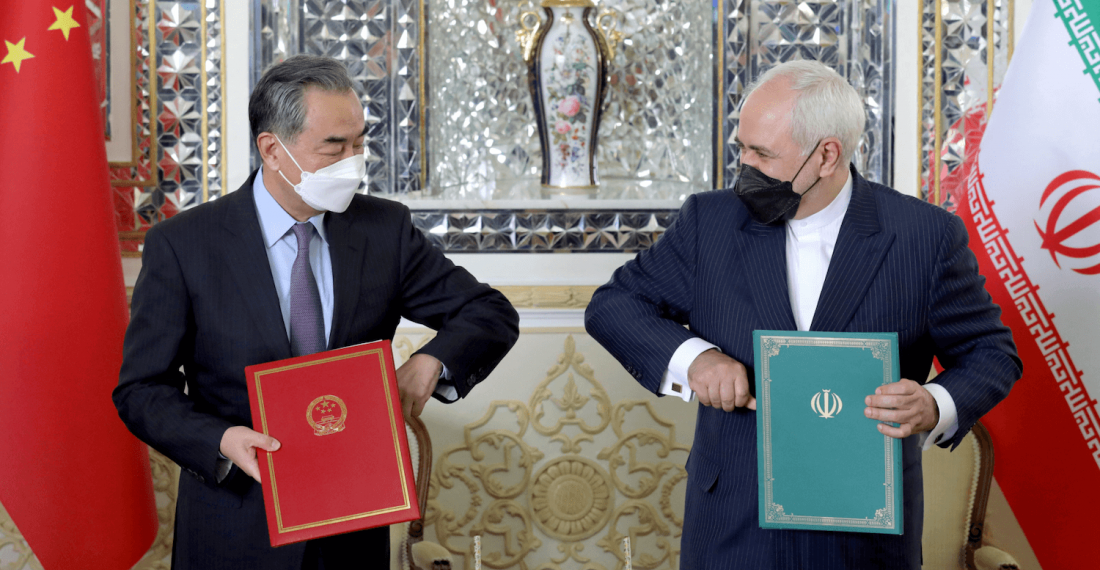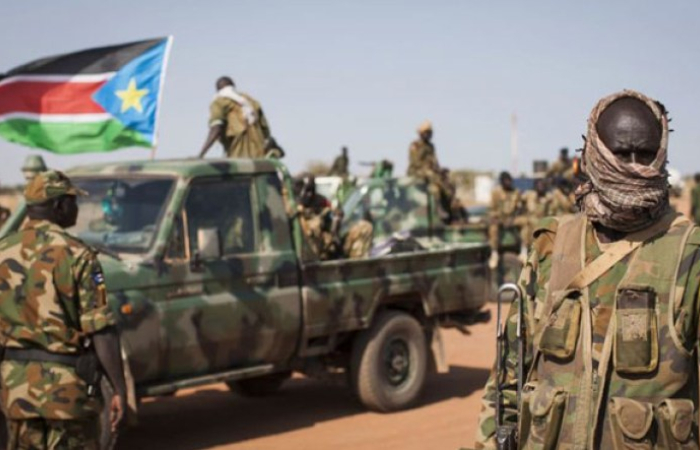The recent signing of a strategic partnership with Iran shows that China is now a significant player in the geopolitics of the wider Middle East. This has implications for the South Caucasus and particularly Armenia, writes Benyamin Poghosyan in this op-ed.
The Middle East has been an arena of great power competition since medieval times. Ottomans were fighting Persians, and then the British Empire and France dominated the region. After the Second World War, the Middle East was among the many areas of US-Soviet Union rivalry, and later the US was the only "kingmaker" enjoying its "unipolar moment." In the last decade Russia returned to the Middle East, launching a military campaign in Syria, facilitating the trilateral Astana process with Iran and Turkey, and cultivating pragmatic relations with Israel.
Until very recently, another global player – China – perceived the Middle East only through an economic lens. China imported a significant quantity of oil from the region, and the UAE became the critical hub for Chinese exports to the region and beyond. However, the growing global influence of China and looming strategic competition with the US started to impact Chinese attitudes towards the region. Whilst the Middle East cannot compete with South East and East Asia to become the top priority for Chinese foreign policy, China has eventually started to look at the region through a geopolitical lens, seeking to increase its political clout there.
Iran was the obvious candidate for China to foment its influence. Iran is the main US adversary in the region and, like China, is a nation with an ancient civilisation, which China respects. Iran–US disagreements have multiple layers, and even if the Biden administration returns to the 2015 nuclear deal, tensions will remain for the foreseeable future. Iran has friendly relations with Russia, which is also a plus for the development of Iran-China relations. From the Iranian perspective, strategic relations with China may provide Iran with much-needed cash and technologies to continue its "resistance economy" policy and deter the US pressure. The harbinger of the new era for the China-Iran relations was President Xi's visit to Tehran in January 2016.
On that occasion the two countries signed 17 agreements on a range of issues and agreed to boost bilateral trade to 600 billion USD over the next decade. The key result of the visit was the preliminary agreement to sign a strategic partnership agreement with 400 billion USD investments for the next 25 years. Since then, bilateral discussions have been underway to finalise the deal. The US withdrawal from the Iranian nuclear deal, the US-China trade war, and the COVID-19 pandemic delayed the agreement's signature. Finally, on March 27, 2021, the two sides signed the deal during the visit of the Chinese foreign minister to Tehran. The agreement may usher a new era for the Middle East, bringing another great power into the regional equilibrium. The US, Israel, and the Gulf Arab monarchies will look cautiously at the development of Iran-China relations. However, except for the US, neither Israel nor the GCC members can prevent the development of China-Iran relations, or put pressure on China. They all have beneficial bilateral economic relations with China and are not interested in jeopardising partnership with the growing world giant.
In the wider Middle East, the developing strategic partnership between China and Iran may have significant implications for the South Caucasus and Armenia too. As a member of the Eurasian Economic Union (EAEU), Armenia enjoys an interim free trade regime with Iran, and negotiations continue with a view to signing a permanent free trade deal between the EAEU and Iran. Armenia is the only EAEU member state, which has a land border with Iran, via the Syunik region, and this creates possibilities to transform Armenia into a production hub for foreign companies, which are keen to have tariff-free exports to the 84 million-strong Iranian market. Since 2016 Russian President Putin has floated the idea of establishing the "Greater Eurasian Partnership," which may unite the EAEU, the Chinese Belt and Road initiative, and ASEAN. The EAEU and China signed an agreement on trade and economic cooperation in May 2018 as the first step towards establishing co-operation between EAEU and BRI.
Currently, Armenia is in an acute political and economic crisis due to the defeat in the 2020 Karabakh war. Armenia needs time to stabilise the domestic situation and to stop the economic decline. The flow of foreign direct investments and increase of exports will play a decisive role in Armenian efforts to boost its economy. In this context, the launch of the China-Iran strategic partnership, coupled with Russia-China and Russia-Iran friendly relations, may create additional opportunities for Armenia to become a part of a potential China-Russia-Armenia-Iran cooperation.
However, to do this, Armenia should not sit and wait until China, Iran, or Russia approach with suggestions. Yerevan needs to develop a strategy towards Iran and China, taking into account the recently signed strategic agreement between the two. Armenia should have a frank discussion with Iran concerning the latter attitude towards the growing role of Turkey in the South Caucasus, and what Armenia and Iran can jointly do in the face of an over-assertive Ankara. Armenia also needs to send clear messages to China underlying Armenia's friendly attitude towards Beijing. These steps may include purchasing some amount of China-made COVID-19 vaccines, starting negotiations to invite Chinese telecom companies to explore the possibility of launching a 5G network in Armenia, and an Armenian decision to cancel its membership in the International Religious Freedom Alliance, which is an irritant for Beijing.
Source: This op-ed was prepared for commonspace.eu by Benyamin Poghosyan, Founder and Chairman of the Center for Political and Economic Strategic Studies in Yerevan.
Photo: The signing of the Iran-China Strategic Agreement in Tehran on 27 March 2021.







